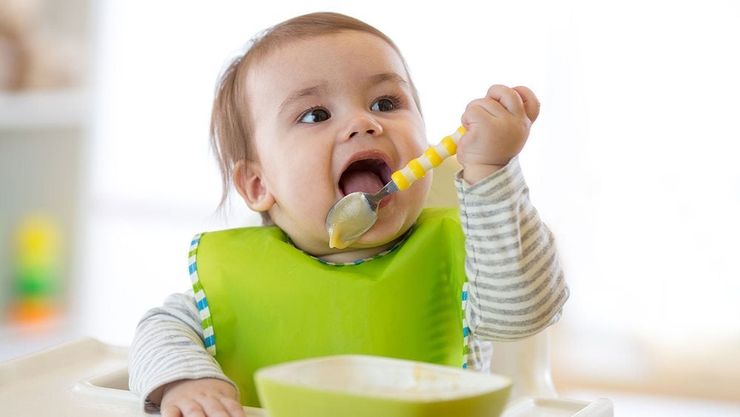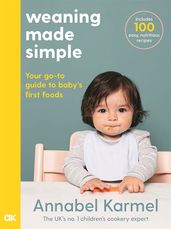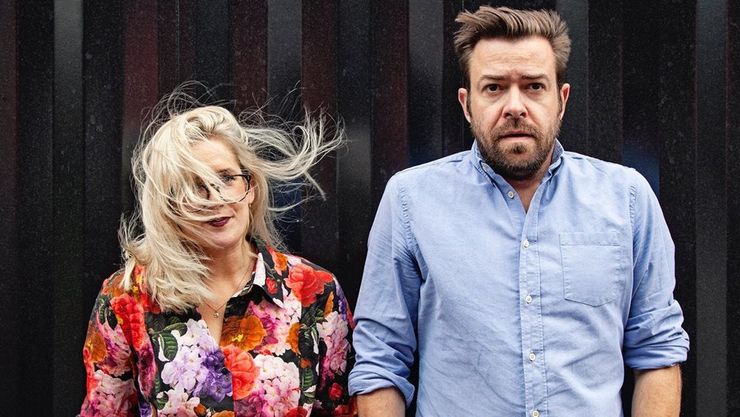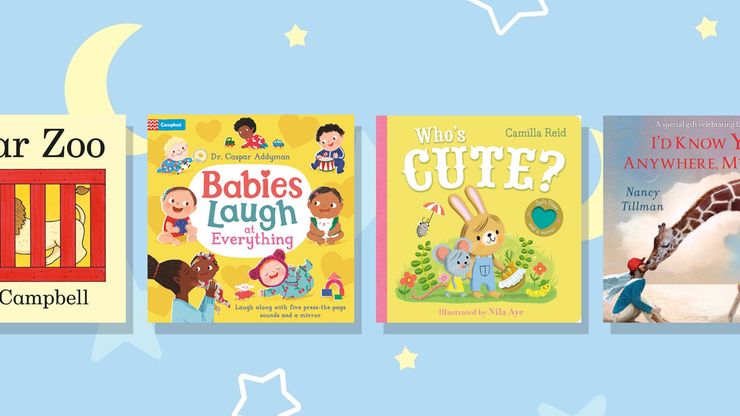Tips from expert Annabel Karmel on how to wean your baby
Weaning is an exciting new step in a baby’s life, but it can be nerve-wracking for mum and dad. Here, weaning expert Annabel Karmel takes the stress out of starting your baby on solid foods with her top weaning tips and myth busters.

How do I know when my baby is ready for weaning? What are the best first foods for my baby? How much is too much or too little? Weaning is an exciting major milestone in your and your baby’s life, but it can so often be full of stress and worry for parents – especially if it’s your first child.
Annabel Karmel has spent her career helping families giving advice, support and providing nutritious recipes for kids, so she knows what a challenge baby weaning can be. Annabel’s book Weaning Made Simple is full of practical information and easy-to-follow guidance and 100 baby weaning recipes to support you through the weaning stage and lay the foundations for a lifetime of healthy eating. Here, Annabel lets us in on her top tips for weaning and shares the truth behind the weaning myths every parent has heard.
Annabel Karmel's top baby-led weaning tips:
Tip 1. Lunchtime is the best time of day for your baby’s first solid food meals, as she should be hungry, but not too tired to eat.
Tip 2. Introduce a cup from around six months and offer sips of water with meals. Using an open cup or a free-flow cup without a valve will help your baby learn to sip and is better for her teeth.
Tip 3. Baby-led weaning encourages hand-to-eye coordination and regularly handling foods improves their dexterity, which is a hugely important skill for your baby to master.
Tip 4. There is no right or wrong to weaning. Some babies thrive on purées, others on finger foods, and some on both.
Tip 5. Runny eggs are back on the menu! Eggs are one of the most nutritious foods available and your baby can eat them runny when you start weaning at around six months, as long as they have the British Lion mark.
Tip 6. The more your baby experiments with finger foods the quicker she will become proficient at feeding herself.
Tip 7. Ripeness in fruit is an extremely important aspect to support digestion. Ripeness is all about texture and being able to physically manage to eat the food. For example, a ripe banana is soft and squishy, and perfect for your baby.
Annabel Karmel answers your baby weaning worries
Can I give my baby tap water?
Tap water is perfectly fine for your baby from 6 months (so long as the supply is safe). It is only necessary to boil tap water to kill any bacteria if using with formula.
Can I give cow’s milk to my baby before 12 months?
Cow’s milk should not be consumed as a drink until twelve months, but you can use it from six months in recipes and in their cereal, so long as your baby is getting their recommended daily intake of breast milk or formula.
Should my baby just eat rather than play with their food?
Encourage playing and exploring with food’s flavours and textures as much as possible. After all, taste is just one of the five senses. Offer a finger food along with a dip or purée for a hands-on baby-led weaning experience.
Do I need to avoid introducing meat and other protein when weaning my baby?
Red meat, chicken and fish should be introduced from six months, as they are iron-rich. Make sure they are cooked thoroughly and check well for bones before offering to your baby. Lentils and pulses are good protein-rich options.
Is my baby too young to manage textures in food?
Your baby may not have teeth, but from 6 months they will be well able to manage soft lumps and minced or mashed meals, so don’t hold back when it comes to increasing textures.
My baby hates being the clean-up job after a round of food exploration in baby-led weaning
Try taking baby out of their highchair and cleaning them up while sitting them on your knee. That way, they are less likely to associate the negativity of having their face and hands wiped within their immediate feeding space.
Should I stick to the foods my baby likes?
It’s true that babies like familiar foods, but food habits are formed early, so if you keep offering a range of nutritious, wholesome foods, there’s more chance they’ll eat healthily when they’re older.
Is it true that bigger babies need to be weaned earlier?
Babies who are big for their age do not need solids earlier than other babies – it’s what’s going on inside that counts. Babies are ready for solids when their digestive systems are developed enough to cope. That’s not before 17 weeks.
Weaning Made Simple
by Annabel Karmel
When is my baby ready for her first foods?
Which foods should I try first?
How do I introduce critical nutrients?
What do I need to know about allergies?
Weaning Made Simple helps you to find the right approach to weaning for your baby – and you. Packed with practical advice and 100 nutritious recipes, this is the essential guide to feeding your baby, from the UK’s number one children’s cookery author and weaning expert.



